At Mulat Pinoy-Kabataan News Network, we always strive to teach young people not only about important population and development issues, but also about media practices and ethics.
Recently, we were lucky enough to attend “Strengthening Women’s Voices in Post-2015 Development Agenda through the Media,” a Women’s Feature Service media workshop supported by the US Embassy. Young women journalists from around the Philippines gathered to talk how women’s issues can be addressed in media, and how important a role women media practitioners play in emphasizing these issues. MP-KNN took this opportunity to ask these young journalists to share their experience with our youth reporters.
Jessa Mardy N. Polonio, Baguio Chronicle
I’m a writer for Baguio Chronicle. It’s based in Baguio City, circulating in the Cordillera Region. At first it was very hard. I was struggling to write good stories. My first assignments were local government unit projects and developmental stories. So I would have to introduce myself to the politicians and all kinds of officials.
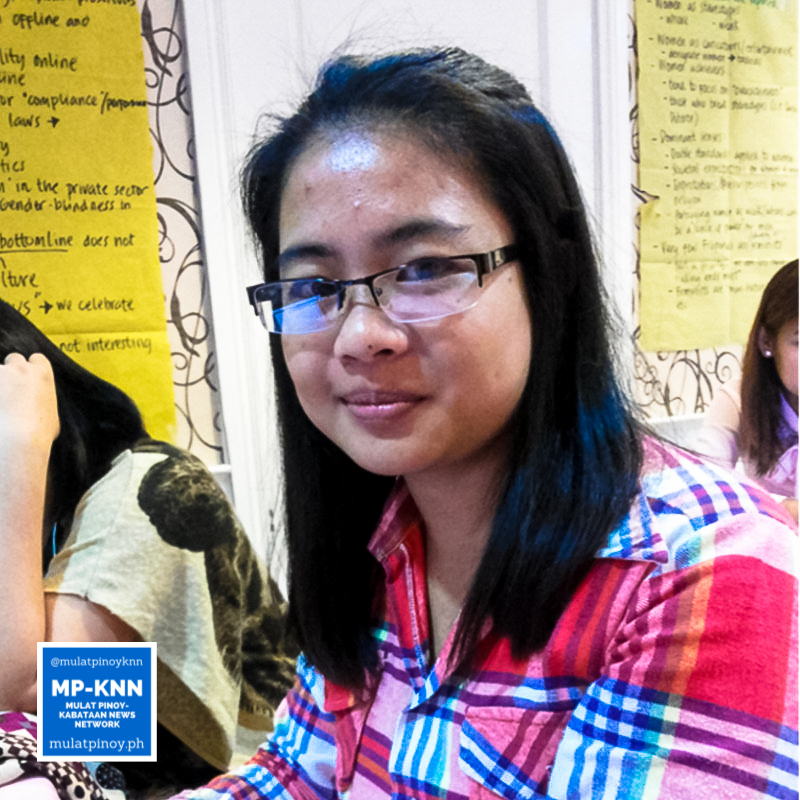
Jessa Mardy Polonio at the WFS Media Workshop 2015 | Photo by Regina Layug-Rosero/MP-KNN
What I learned is that when you write or when you conduct an interview, your questions should not attack their personality, because they will take it against you, and they forget that you are just doing your job. Many times, parang lagi ako’ng nababara. Yung mga question na gusto ipatanong ng akin ng boss, tinanatong ko lang naman. Pero ang isasagot sa akin, who are you anyway? But I did not give up, siguro matapang ako.
At first medyo mahirap. Ano ba itong pinasok ko? Pero napag-isip-isp ko rin, what will I do? Where will I go? Hindi ko rin naman kaya sa broadcast, kasi mas grabe naman yung pressure dun. Naisip ko na lang na I have to improve my craft, maybe I could look for more stories outside the usual LGU stories. And now I’m into developmental stories, community stories. Yun ang focus ko ngayon.
On harassment: May mga magaspang or bastos. Yung boss ko, pinagsasabihan niya kami, “Dapat pag may mga nambabastos sa inyo, magsalita kayo. Sabihin niyo sa kanila, in a polite way, so that wag na nila ulitin.” One time, nag-skirt ako, may nagsabi, “O, ma-juice!” Yung ganung term, parang sexy, hot, o hot girl, derogatory talaga siya. Sinabi ko, “I think that’s not appropriate. I think your words are not appropriate.” Hindi na siya umulit. Ang nagsabi nun, lalake na broadcaster.
Jennifer Salenga, CLTV36, Pampanga
Nag-work ako as reporter for almost four years. I started right after I graduated, like 5 or 6 months after graduation. After almost four years, nag-resign ako because I felt na I need to rest. Siguro dahil sa dami ng ginagawa, reporter, producer, anchoring. Napagod ako. After nun nag-apply ako ng ibang trabaho, managerial sa mga hotels. Pero at the end of the day, hinahanap ko pa rin yung reporting. Parang mas fulfilled ako nung nasa media ako.
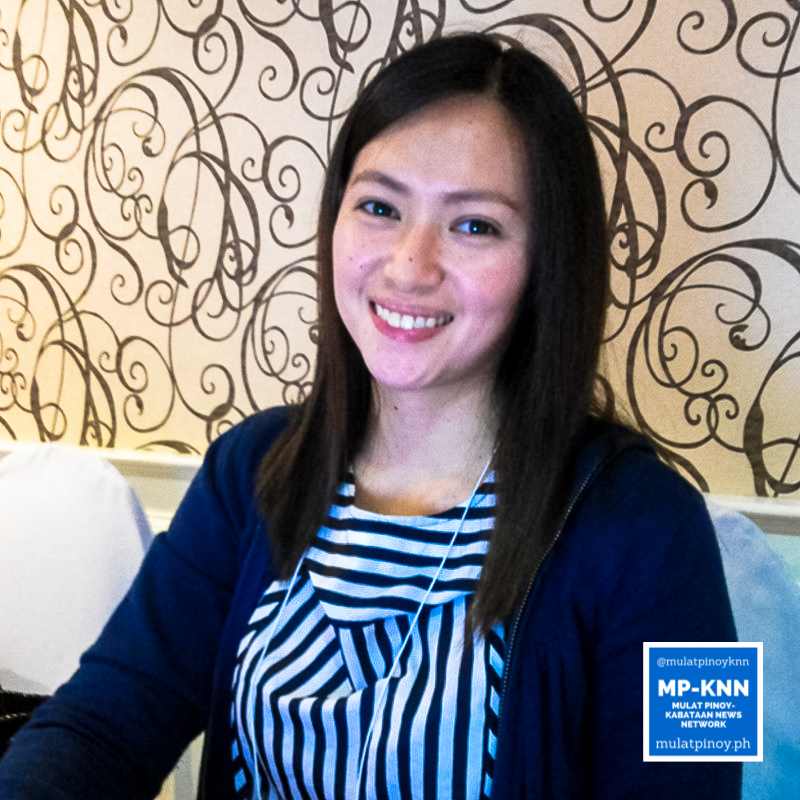
Jennifer Salenga at the WFS Media Workshop 2015 | Photo by Regina Layug-Rosero/MP-KNN
Kaya I decided to come back. Actually, less than a month pa lang since I came back to reporting, kaya very privileged ako na part ako ng seminar na ito. Parang ang ganda ng start. You have the passion kasi e. Not only dito sa seminar sa mga kababaihan, but yung role mo as media in a small community. Para sa akin it’s very important, kasi nga nagiging tool ka mai-voice out ng mga tao yung opinions nila. Aside from informing them kung ano yung nangyayari sa society, ang mas nakaka-fulfill is when you do a story na you know na magbe-benefit talaga yung community.
For me, yung journalism is my life. Parang sa public service, kung may mga politicians, yung way of helping nila is by becoming a politician, para sa akin, ang way ko para maka-help at maka-contribute sa community, by giving them information, relevant information by reporting stories that covers about their lives in the community. That’s my life.
Jhoanna Marie G. Buenaobra, Philippine Daily Inquirer Northern Luzon
Being a young woman reporter, everything is new. Even if you say na it’s school in practice, iba talaga kapag nasa field ka. Ibang-iba yung experience. May pressure na real journalist ka na. Accountable ka na sa lahat ng sinusulat mo, so mas responsible ka na kumpara nung student ka. And of course as a person who had dreams of becoming a journalist, and now I’m living it, sobrang saya.
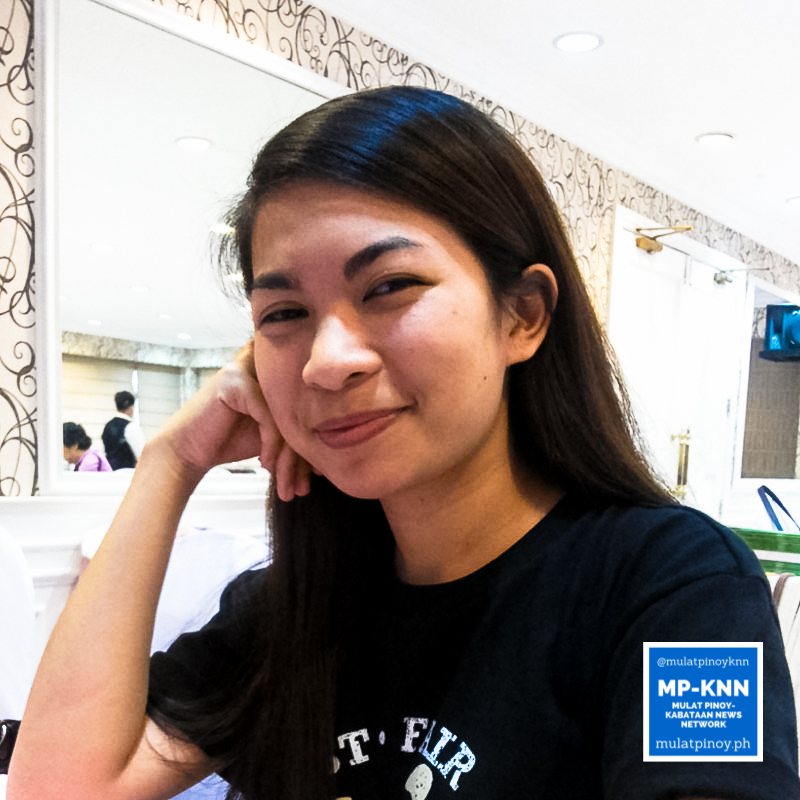
Jhoanna Marie Buenaobra at the WFS Media Workshop 2015 | Photo by Regina Layug-Rosero/MP-KNN
Mahirap sa print, kasi regional. Pero dun mo makikita yung passion talaga ng isang writer. Na kahit na minsanan ka lang maka-publish, dahil din sa competition ng other correspondents from different areas, tuloy-tuloy pa rin. Kasi nakikita mo yung cause ng ginagawa mo, especially for me, ang advocacy ko kasi is environment, at pangarap ko talaga maging environmental journalist.
Now, yung mga articles na ginagawa ko for PDI, mostly environment-related sila, so parang achievement on my part. At the same time, yung mga current events, mga concerns ng society at nung area na kino-cover ko, na-a-address din sa national level.
Princess Dawn Felicitas, Cebu City
Maraming challenges, kasi marami ding mga seniors on field, so mas marami sila’ng wisdom, there’s still a lot of things you need to know, so one of the challenges ko yun as a young journalist.
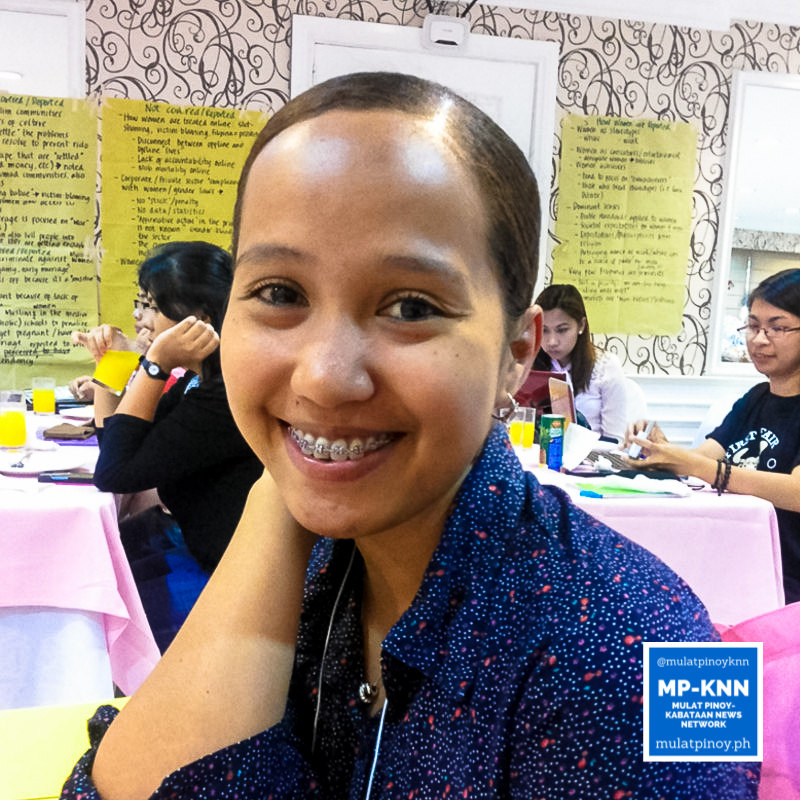
Princess Dawn Felicitas at the WFS Media Workshop 2015 | Photo by Regina Layug-Rosero/MP-KNN
I cover local government sa Cebu City. Some sources may apprehensions, ayaw magpa-interview sa yo kasi bata ka pa. Lagi nilang tinatanong or sinasabi, you have to write it properly, carefully, ganun ba, kasi bata pa daw. So challenge din yun.
Louine Hope Conserva, The Daily Guardian, Iloilo
I started working in the media in 2011. Nag-graduate ako in 2011 in April, and then by May 1, employed na ko. Walang one month yung rest! Then eventually yung newspaper, nag-close. I started as a Lifestyle editor, pero business reporting yung orientation ko. And then I applied in another newspaper company. Ito na yung The Daily Guardian. Bigla akong nasabak sa hard news. But then nung third year high school kasi ako until fourth year, contestant din ako nung Campus Journalism, so meron na rin ako’ng orientation on hard news.
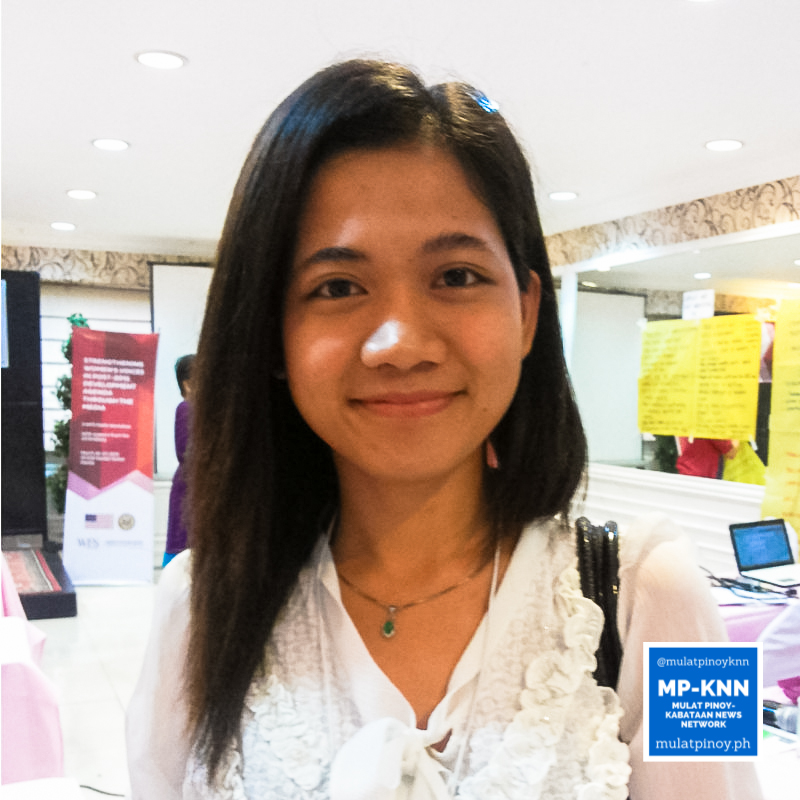
Louine Hope Conserva at the WFS Media Workshop 2015 | Photo by Regina Layug-Rosero/MP-KNN
Nung pumasok ako sa The Daily Guardian, maraming opportunities compared with yung previous newspaper ko. Pumasok ako sa The Daily Guardian February last year. Since then I’ve been to many seminars. Sa US Embassy, meron sa gender, sa NUJP. Then ito, fourth for this year lang. So I’m telling mga mass comm students, apart from the perks ng nasa media ka, every day meron ka’ng bagong learnings. And every day yung feeling mo accomplished ka, kasi every day meron ka’ng output.
Pero kung writer ka or reporter ka, like every day meron ka’ng quota right? Three stories a day dapat ipasa. So yung at the end of the day, parang accomplished ka, you feel proud, kasi meron ka’ng output. Hindi lang siya you go out and you look for news, tapos wala lang, go home and hindi matutulog. Feeling mo na empowered ka. Productive ka, hindi ka lang established dun sa work mo, you also help. Kasi yung work ng media is parang public service din. You inform, you also inspire others, so kumbaga parang multi-tasking ka. Hopefully yung mga mass comm students would opt to be part of the media industry.
Trisha Ann Samantha Aligato, Radio ni Juan, Tagum City, Davao Del Norte
When you’re in a news room, very wide yung hina-handle mo na topics. Southern Mindanao Region (SMR) is very highly militarized, so I’m very concerned with indigenous peoples (IP), the children and the women in the IP communities. So I’m fascinated with exploring their rights, the human rights violations cases in the mountains of SMR.
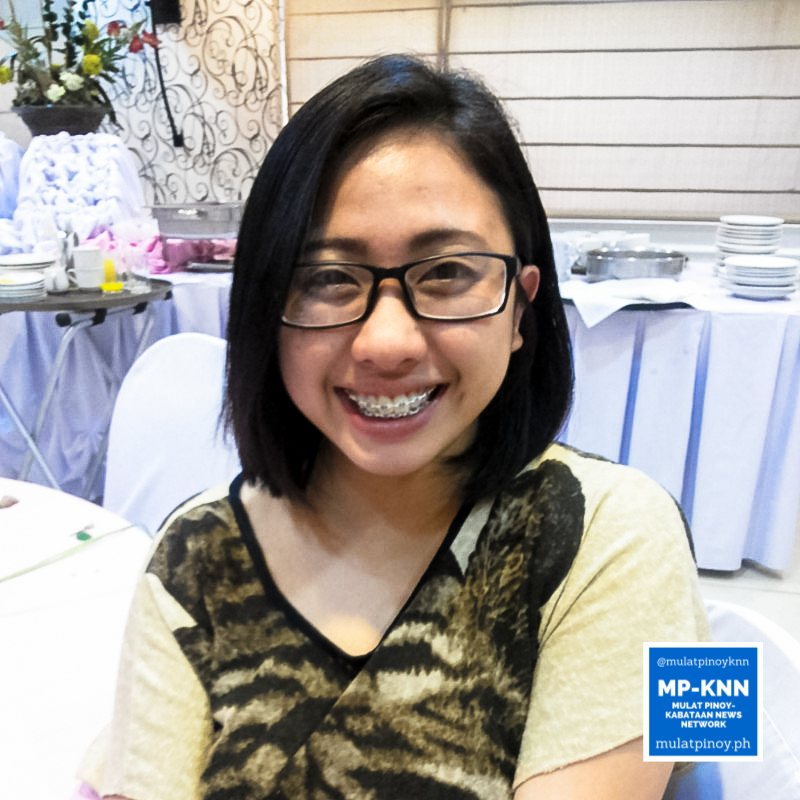
Trisha Ann Samantha Aligato at the WFS Media Workshop 2015 | Photo by Regina Layug-Rosero/MP-KNN
As a young reporter, first of all, you don’t have a choice, being young, di ba? And you have to start young, if you want to be good in the media world. Honestly, you don’t earn enough in media, you’ll not get rich here but if you want to really pursue this job, start young. You learn from experience and you learn from your work, actually in the field. Because when you have that desk journalism, you write from your desk, it’s different when you see real people, people in the field, know their stories.
I’m only 22, I’ve only been working in media for one, two years, so I’m still trying to figure things out.
Julia Jasmine Madrazo Sta. Romana, GMA News Online
I am a science and tech journalist from Davao City. As a young woman in journalism, in the beginning it was a bit challenging kasi I’m not a journalist by training. I’m actually a scientist by training. Number one interest ko kasi yung science and tech e, and writing was also my interest. And advocacy din talaga kasi ang science, so going into media was really part of my advocacy to spread the word that people should adapt–not adapt, but people should be more aware of science.
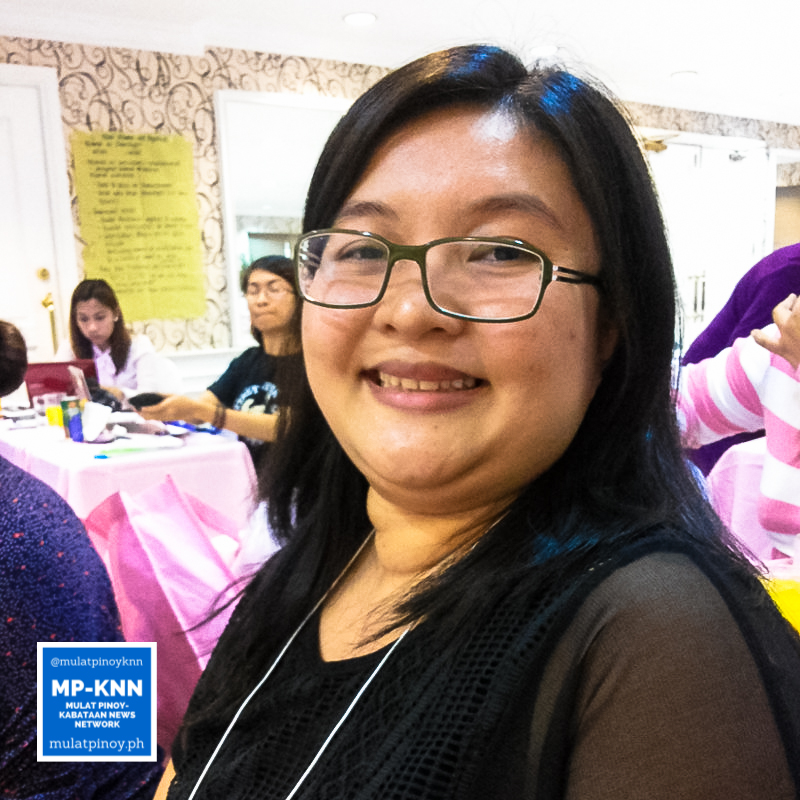
Julia Jasmine Madrazo Sta. Romana at the WFS Media Workshop 2015 | Photo by Regina Layug-Rosero/MP-KNN
Science should be as important as politics, sports or being a celebrity. Because science encourages more people to think more critically. Kasi when you see people comment on science news, they do think more critically. They think, totoo ba yan? What’s the basis for this story? How is this applicable?
If only people would apply those principles when they comment on politics, or on showbiz, we would have a more intelligent population. That’s why I am doing this. Even though it is challenging, especially in a region wherein there’s not really a lot of science or tech news. Pero after doing this for a while, dun ko din na-realize na there is science news naman. You just have to find it. And as a science and tech journalist, it’s my responsibility to make science interesting, to make science newsworthy. So dun ko na-realize na there’s no such thing as ‘there’s no story.’ There’s always a story.

One Comment on ““[MP-KNN Profiles] Young women journalists at the WFS Media Workshop””
Thanks so much for giving me the chance to talk about science journalism Reg! I hope I could convince more from the Kabataan News Network to cover science and tech stories =)